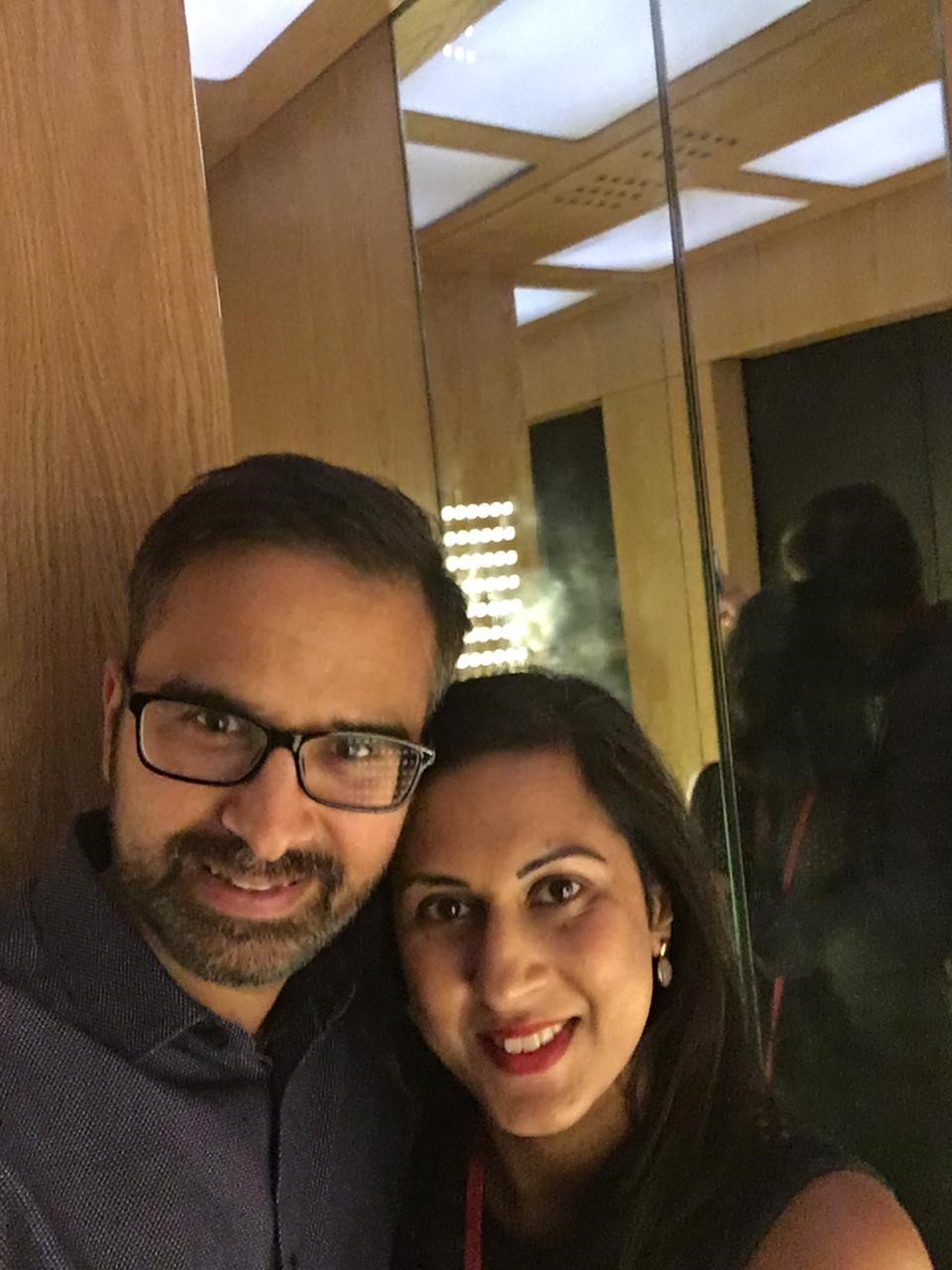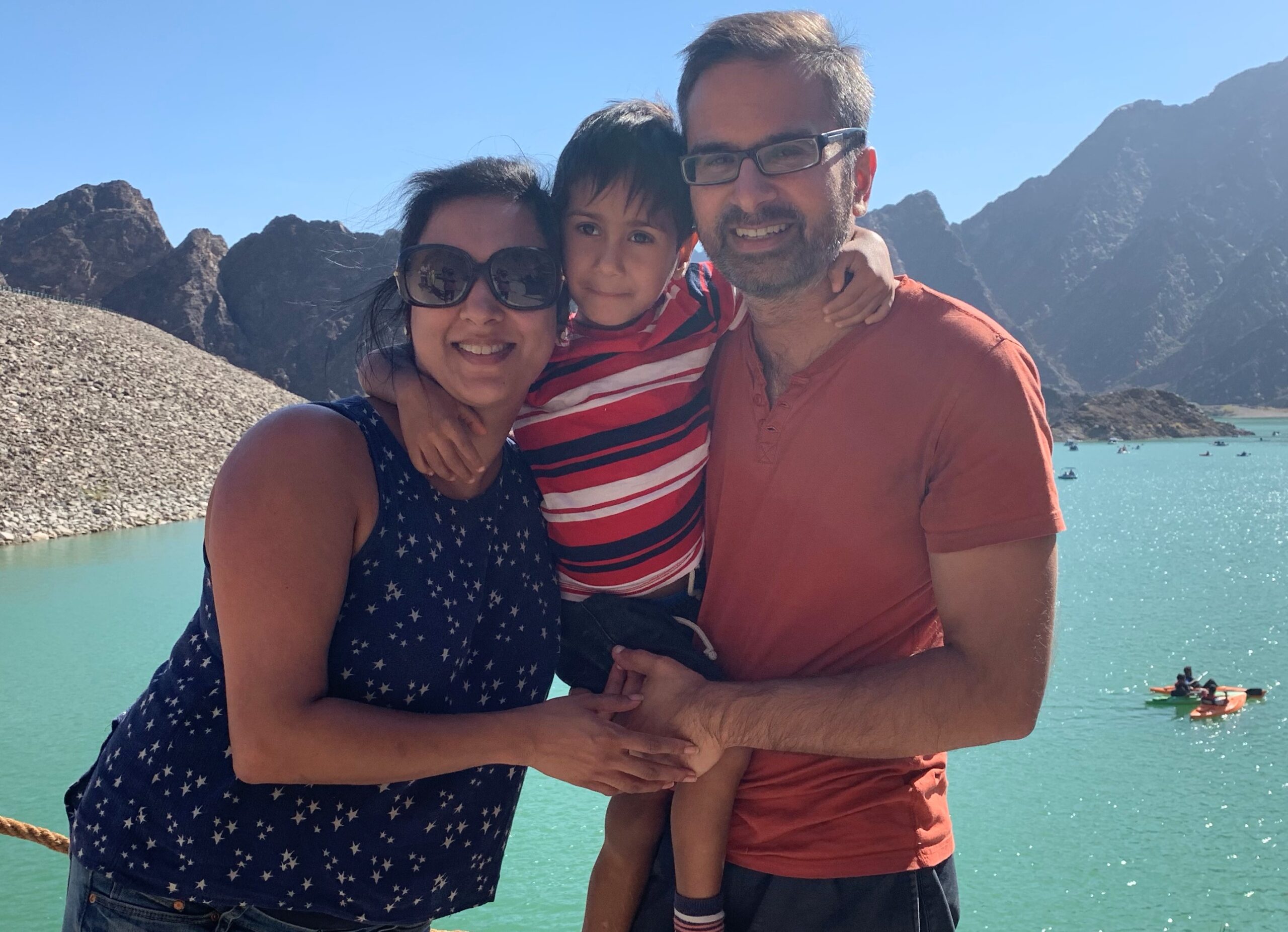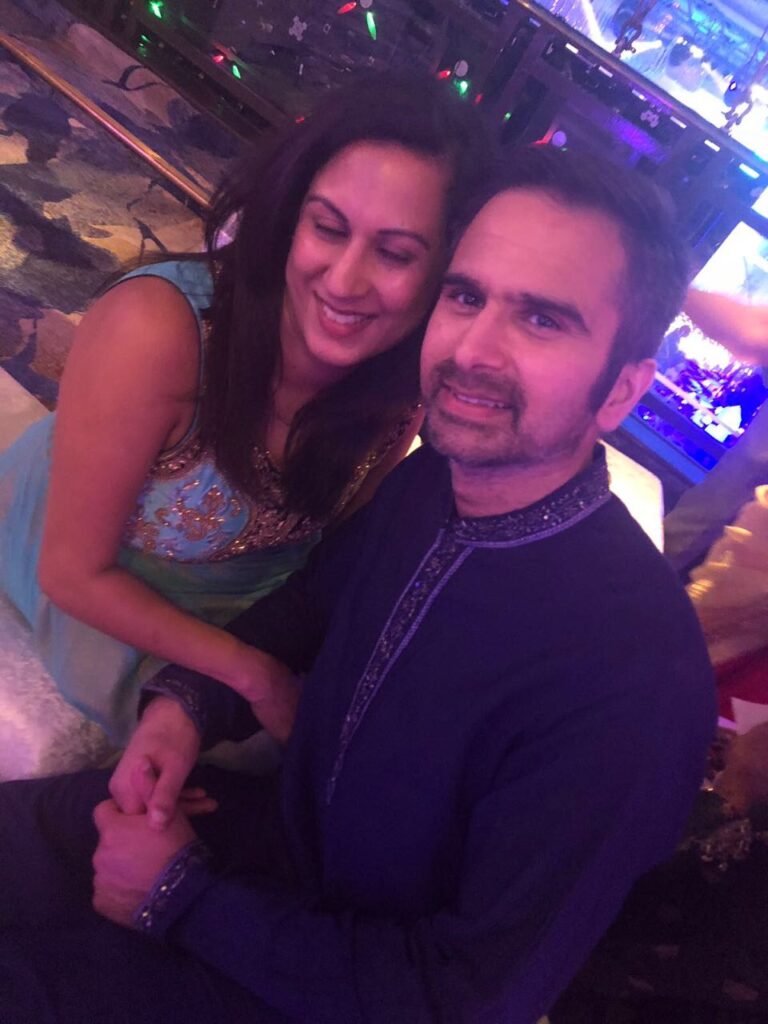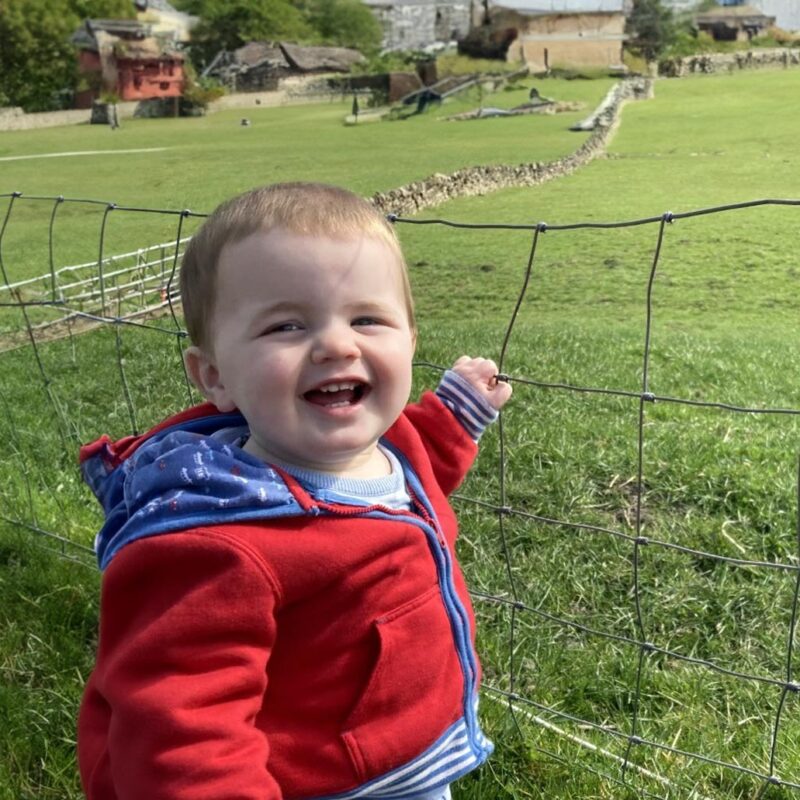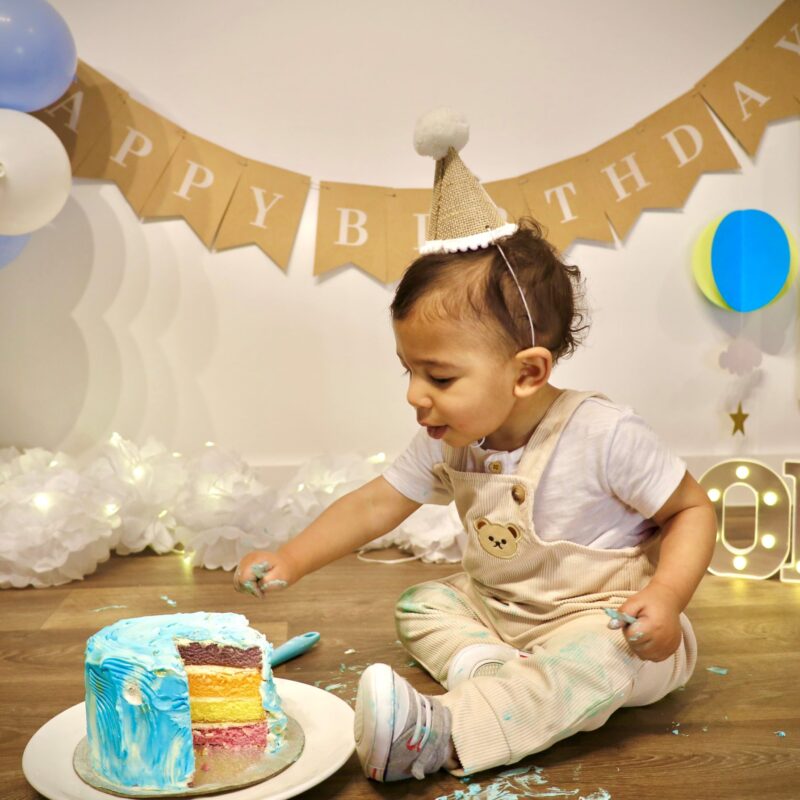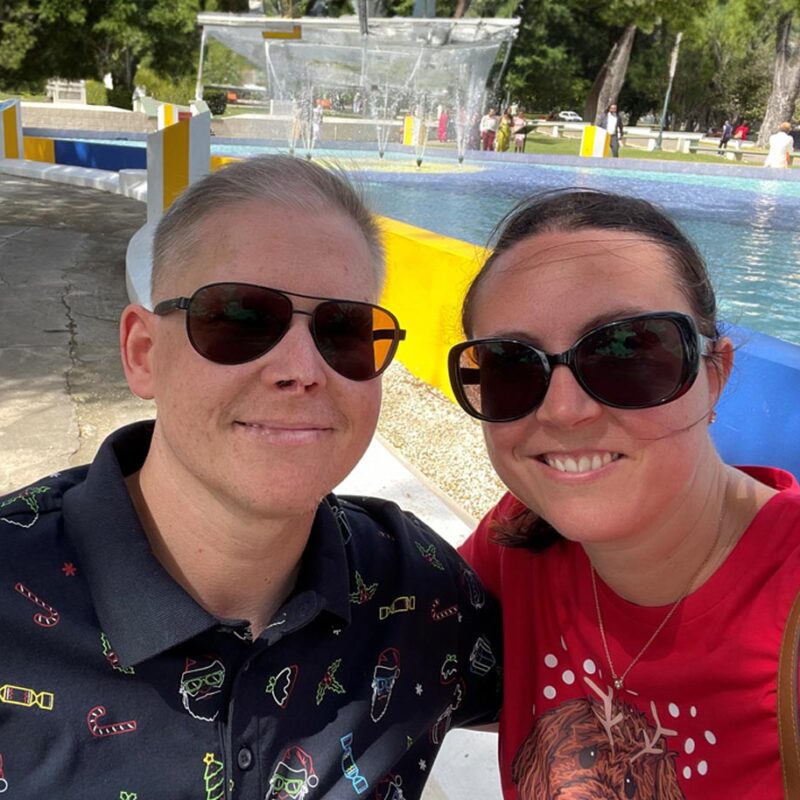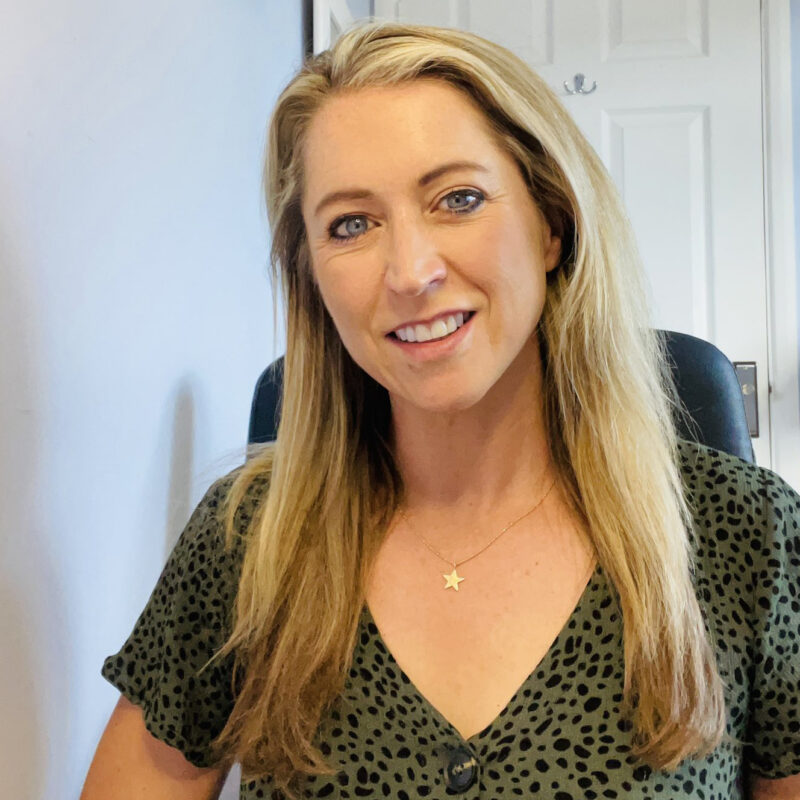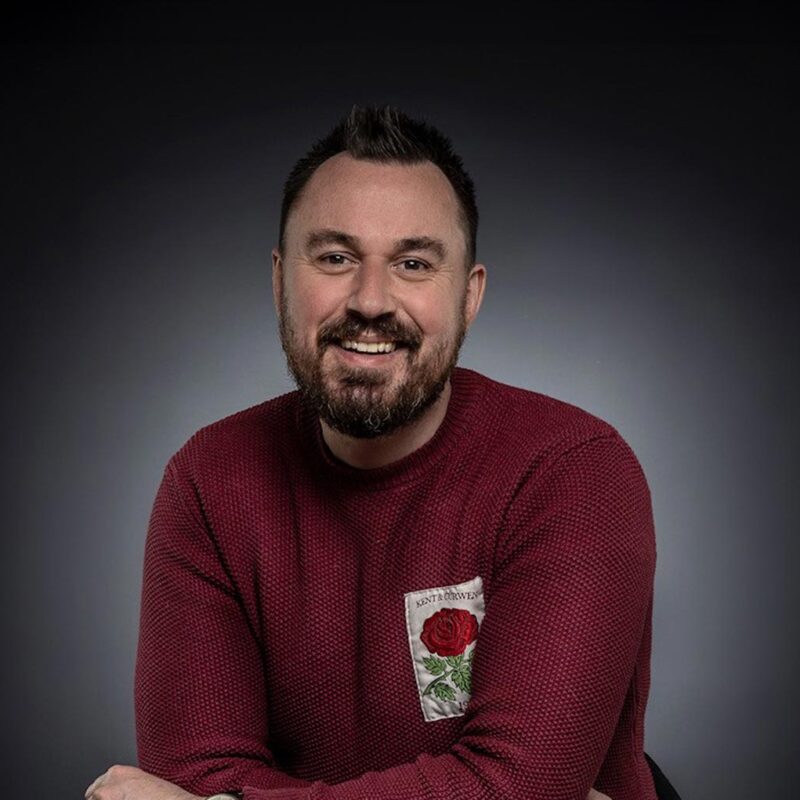It’s a phone call that will haunt me for the rest of my life. It was the hospital consultant, calling to tell me that my 6 day old son’s heart was failing, and they needed to start chest compressions. Even though I remember that phone call so clearly, I can only remember quick snippets of the horrendous few hours which followed: the struggle to run as fast as we could to the car, leaving my pyjamas in a heap on the floor, and looking back as I closed the front door and seeing them and ludicrously thinking Nishi would tell me off for putting my clothes in a messy heap; the desperate need to reach the hospital as soon as possible and therefore pushing past the speed limit to finish the journey which had become all too familiar in those past few days; the sinking dread of what we would find at Samar’s temporary home once we arrived; and the shattered faces of the doctors and nurses as they knew they would have to deliver the hardest news of all – they would have to tell parents that their baby had not survived.
With hindsight, the phone call from the consultant should not have been a surprise. Samar’s blood pressure had become unsustainable many hours previously, and we had been warned that this could be a potential outcome. Nevertheless, on that mad final 3am dash to the hospital, we had hope in our hearts, and kept a positive outlook in the hope that the chest compressions would somehow not only give him his heart back but also miraculously stabilise his blood pressure in a way that the cocktail of drugs could not. After all, losing a baby was the kind of thing that happened to other couples, not to us, and we weren’t going to give up on our hopes and dreams so easily.
And what hopes and dreams they were – nothing spectacular, nothing earth-shattering, just the hopes and dreams shared by a hundred thousand parents-to-be from all over the world and all through time……the fulfilment that comes from adding to your family, the anticipation of Shrey having a little brother to play with, and the bottomless joy that comes from creating new life. These were all hopes and dreams formed not only when he was in the womb for 9 months, but also in those first few days when I held him in my arms and never wanted to let go.
Even though Samar’s life shone brightly for us in that time, the truth is that in his six days on this Earth he won’t have, can’t have, touched many others in the same way that he touched me and Nishi. So this is an attempt to tell Samar’s story, and even though it feels pointless, I hope the act of sharing his story will ensure that his memory lives long in the minds and hearts of others.
How did it all go so wrong?
Samar Gandesha was born on 25 May 2018, at 6.49pm, in Dubai, and he was 6 weeks early and weighed 1.5kg after yet another super-quick labour for Nishi. Small, yes, and early, yes, but within the “safe” ranges for his gestation and as the doctors took him off to the Neonatal Intensive Care Unit, we felt confident that once he had fed well and grown, he would be able to join us in our newly extended family at home. The doctors told us they didn’t expect any intense medical intervention, and our main priority in the first few hours and days was ensuring that he had enough to eat and enough full nappies to show us he was getting the nutrition he needed. Everything was fine for a couple of days, he lost a bit of weight initially as expected, but the first sign of something wrong came on the evening of the 28th May, when the neonatal nurse spotted a variation in Samar’s temperature. An overnight test for infection came back positive, and suddenly on the morning of the 29th Nishi and I noticed a step-up in both the urgency with which Samar was being treated and the tone with which the doctors addressed us. Even though we didn’t realise it at the time, septic shock was already on the minds of the medical professionals who had the job of directing Samar’s tiny body to fight off the infection that he had suddenly developed.
The crux of the matter is; nothing worked. Not the variety of antibiotics they gave Samar, not the blood pressure medication they gave him as his little body began to give in to the infection which was attacking his body, not the central line they fed through his chest to deliver ever-increasing doses of powerful drugs, and certainly not the desperate wishes of his two helpless parents, crouched next to his incubator for two full days and obsessing about every slight fluctuation in his vital signs from the countless number of machines and alarms he was hooked up to. From the evening of the 29th to the morning of the 31st May, Samar’s organs slowly began to shut down, and on the 31st May he passed only a trace amount of urine. From there it was only a short deterioration to reach that fateful 3am phonecall from the hospital, and Samar Gandesha’s life was extinguished just 6 days after it began.
Emptiness followed. I always thought the death of a loved one would be followed by an intense period of grief, where you don’t know what day of the week it is, whether you’ve showered or not, or what time you last ate. In fact, all I remember from after the first few days after he left us is a feeling of numbness. The best way to describe it would be a feeling of being on autopilot and walking around in a daze not being able to fully appreciate what had happened. Maybe it’s a coping mechanism, but my brain didn’t feel able to compute all the outpouring of love and affection we were receiving from family, friends and colleagues.
I do remember Nishi and I talking a lot about everything; what had happened, what we had lost, how to break the news to Shrey, and a variety of other things. Even though we didn’t realise it at the time, these were key moments in us reacting to what had happened and slowly beginning to process the grief. And we did react in very different ways. Immediately after he left us, Nishi felt a keen sense of the loss of a baby, and she desperately wanted to have a little one to hold and cuddle. I’m not saying I didn’t feel that way as well, but I do wonder if the act of carrying a baby around for 8 months gave her a visceral connection to Samar which would have taken me time to build. After all, I can only imagine the unspeakable cruelty of carrying a baby around for 8 months, delivering him, holding and feeding him, and then watching him pass away.
Instead, my grieving in those early days was more focused on the “what if” and the massive sense of waste; waste of a brother for Shrey, waste of another boy for me, and waste of another son for Nishi. Seeing Shrey progress from a tiny little baby to a little boy has been the most fulfilling aspect of my life and it feels so wasteful to have had another opportunity to be a father, only to have it cruelly snatched away. Never will we know who Samar would have become and what he would have achieved. Never will we see him sit up for the first time, hear his first words, or toddle after his big brother. What milestones we had to look forward to! A lifetime with Shrey and Samar stretched ahead before us, and it filled us with happiness and anticipation as to what was in store. I know for a fact I would have been as obsessed with Samar as I am with Shrey, and I know that all three of us just had so much love to give baby Samar.
My other overwhelming feeling in the early days was one of guilt. The perception of a father as a protector is one that stretches back many thousands of years. Yet I had sat by helplessly and watch my little boy fight and battle and eventually fail in his challenges to overcome his illness. What kind of father was I? I went over and over the times we had been to see Samar in the hospital. Had I failed to wash my hands properly? Had he caught a bug from me? Would this have happened if we had been living in London? Why wasn’t I able to help him? Even now, every time I close my eyes I can see him in his incubator, looking up at me with his big eyes, inquisitively, those eyes politely enquiring when I was going to do something to make him better, and get him home so we could be a family.
However, going too far down that path leads pretty quickly to destruction and that wasn’t something I was going to do. It helps that in Nishi, I had someone who was completely unwavering in her love, support and strength. It’s funny – the main thing people would tell me in the early days (quite rightly) was to make sure I looked after Nishi and to make sure she was OK. When I imagine what she would have been going through it makes my heart break. Although as things turned out, it was the exact opposite – Nishi was my strength through everything. We went through our most terrible times together and the crushing sorrow we experienced affected every aspect of our lives. Yet Nishi unquestioningly allowed me to draw on her strength, resolve and courage to help support me when I stumbled, and shone a light for me in my darkest hours. It is no exaggeration to say that without her, I couldn’t have got through it.
This was never more true than on the day of the funeral. What Nishi and I experienced together is behind a locked door in our minds. It’s not a door either of us want to go through again any time soon, although I am sure there will be a time when we carefully push the door open, hand-in-hand, and re-visit the day we cremated our 6 day old son. That day is not today, though, and even if I knew every single word from every single language in the world, I still wouldn’t be able to find the words to articulate the events of that day.
Samar. The name means “Commander” in Sanskrit and “Reward” in Arabic. We deliberated for ages before we decided. We wanted our little boy’s name to be perfect. Babies are such blank slates – they write their own stories as they develop their own personalities, characters and lives – and Samar had his whole story ahead of him. I constantly wonder what his story would have been, and where his life would have taken him. in fact, we are left with a lifetime of questions. What would Samar have looked like? Who would Samar have looked like? What would he have enjoyed doing? What kind of brother would Shrey have been? Our world is a slightly emptier place without the daily joy he would have brought us and the simple pleasures of having a new baby to love. I’m glad that we at least have some photos of him, even if they were taken in hospital. I’ll never forget the feelings of holding Samar in my arms but at least the photos we do have capture those moments and preserve them as we go onwards.
Onwards: Time has passed now, and as I write this it’s been 6 months since he left us. The passage of time is cruel – a blessing in one way, as it gives distance from the raw pain, heartache and despair which seemed to drown us in the early days. However, time also gives a sense of perspective on what we’ve lost and the big hole in our family which Samar has left. When Samar was two days old he had a fit of hiccups. Nothing exciting, I know, but he only weighed 1.5kg and so every violent hiccup would almost throw him up in the air and then he would land with a startled bump. I am not sure why that stuck in my head so clearly, but every single time I have heard someone hiccup since that day has made me think of Samar. It’s the little things that stay with you but also the big picture that looks so different without Samar. We see friends and acquaintances moving forwards with their lives and we are compelled to do the same – you can’t go backwards – whilst at the same time yearning for just one chance to hit “Undo”, and do the whole thing again… maybe things would turn out differently?
I have also become mildly obsessed with “protecting” myself from encountering families of four – utterly ridiculous I know – because it’s such a stark reminder of what we should have had. Even now my heart skips a beat when I see a pregnant woman. Seeing a new mother with a baby in a pram takes my breath away. It’s the kind of thing that stays with you forever I guess, and not something you “get over”, but I hope I can eventually learn to take happiness in others’ happiness, and rejoice when friends are rejoicing, rather than just feeling a massive sense of injustice.
But let me be clear. If there is one aspect where the passage of time has helped, it’s to sharpen our focus on what we do have, rather than what we don’t. We have the unwavering support of each other, but also the love and light from our families and the care and attention from our friends. We live thousands of miles away from our families, and from most of our friends, and yet never have we felt closer than when everyone put their arms around us and were there for us to lean on when we needed them.
And of course – there’s Shrey.
If someone had asked me even 3 months before Samar was born, it would have been the case that Shrey was my whole world – I couldn’t ever think of a time where I could imagine being happier. However, with the way Samar was taken from us, reverting to the three of us feels cruel and unfair. And that is so harsh for Shrey, who seems to have taken this all in his stride. He asked about baby brother a lot when we told him Samar wasn’t coming home, and he remembers Samar was born on a Friday and he remembers seeing him sleep in NICU.
Breaking the news to him was entirely confusing and Nishi and I felt so conflicted. How much do we tell him? Do 3 year olds understand death? Shrey talked endlessly about baby brother while Nishi was pregnant, and seeing Shrey now without the brother he was so looking forward to fills me with an overwhelming sadness. I feel like I’ve been kicked in the stomach every time I see a pair of siblings having fun with each other because of what Shrey has been denied. But he’s a resilient little guy. He takes joy from everything a normal 3 year old takes joy in, and is growing up to be a happy and well-rounded boy. He has helped our scars to heal without even realising. One day, in the future, we will tell him Samar’s story when he is old enough. It’s not a day I am looking forward to, and yet it’s not a day I am dreading either – for 6 days of my life, I had two sons, and Samar’s story is one that I will never get tired of telling.
So – the story of Samar Gandesha is primarily one of indescribable loss. Nishi and I will certainly never be the same people again. He came and left us so quickly, and yet he will have an everlasting impact on everything that we do in our lives. As the anniversaries come and go, we will forever have a piece missing from our family. We miss him every single minute of every single day, and we will love him forever.
And yet… the story of Samar Gandesha is also one of hope and strength. Nishi and I will never be the same people again – we will be stronger. He came and left us so quickly yet had a completely and utterly disproportionate effect on our lives and he taught us that love, life, hope and happiness will forever and always defeat sadness, grief and despair.
We miss him every single minute of every single day, and we will love him forever.
Neel Gandesha
November 2018
